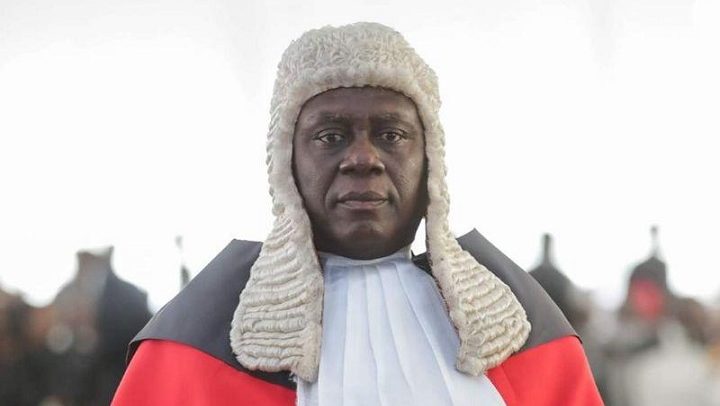Chief Justice, Anin Yeboah
THE GENERAL Legal Council (GLC), the body responsible for the regulation of the legal profession in Ghana, is set to withdraw the recognition of some institutions which offer the Bachelor of Law (LLB) programmes but lack the requisite faculties, lecturers, infrastructure or libraries.
The move, according the Chief Justice, Anin Yeboah, who is also the Chairman of the GLC, forms part of a move to uphold the sanctity of the legal profession and improve standards.
He said the decision to withdraw the recognitions of these institutions followed an inspection exercise carried by the GLC to institutions offering the LLB programme and a report on the findings, which he said were “disturbing indeed”.
“There is nothing punitive about this move, it is rather a precautionary measure to tackle any semblance of professional mediocrity from the wood, not from the branch,” he added.
The Chief Justice was speaking at the International Conference Centre where 846 new lawyers were enrolled at the bar after a completion of the two-year professional law course.
He led the new lawyers to take the oath of the legal profession and also declare an undertaking that enjoins them to practise the profession in accordance with the prescribed code of ethics.
Justice Anin Yeboah called for the need for all stakeholders in the administration of justice to support the Judicial Service policy of making alternative dispute resolution a major component of justice delivery.
He said although the common method of dispute resolution in Ghana has been litigation in the courts, this method though very useful does not satisfy the needs of modern society for various reasons.
“It is expensive, prone to delays, acrimonious in nature and does not promote unity and reconciliation when parties litigate to the bitter end with a loser and a winner. In response, alternative dispute resolution can be used to improve justice delivery in Ghana,” he pointed out.
The Chief Justice said an effective implementation of alternative dispute resolution in the court and within the communities would generally decongest the courts of the heavy backlog of cases, which will enable judges and magistrates to hear cases expeditiously and efficiently, thus improving confidence in the judiciary.
He, therefore, urged the new lawyers to lend themselves to the court-connected alternative dispute resolution practice to promote and ensure access to quality justice for the greater number of the people, particularly the disadvantaged.
Justice Anin Yeboah also cautioned the new lawyers that it will be detrimental to perceive the legal profession as a gold mine with an ultimate aim of making money at all cost. I will urge you to hasten slowly and avoid greed.
“You cannot measure professional success in monetary and material terms only and allow the desire for wealth and power, position and fame to blind you to throw overboard the core values and skills that endanger true professionalism.”
“Rather, you must demonstrate tenacious commitment to the ethics of the profession and hard work as these would earn you good financial reward as well as trust, respect and honour from the people you will be serving. A more enduring success can only be derived from addiction to professional values and manifest satisfaction of your clients, which inevitably will impact positively on society as a whole,” he added.
The Chief Justice, the Attorney General and Minister of Justice, Godfred Yeboah Dame; the President of the Ghana Bar Association, Yaw Acheampong Boafo, and Justices Jones Victor Dotse and Paul Baffoe-Bonnie, took turns to present certificates to the new lawyers.
BY Gibril Abdul Razak

